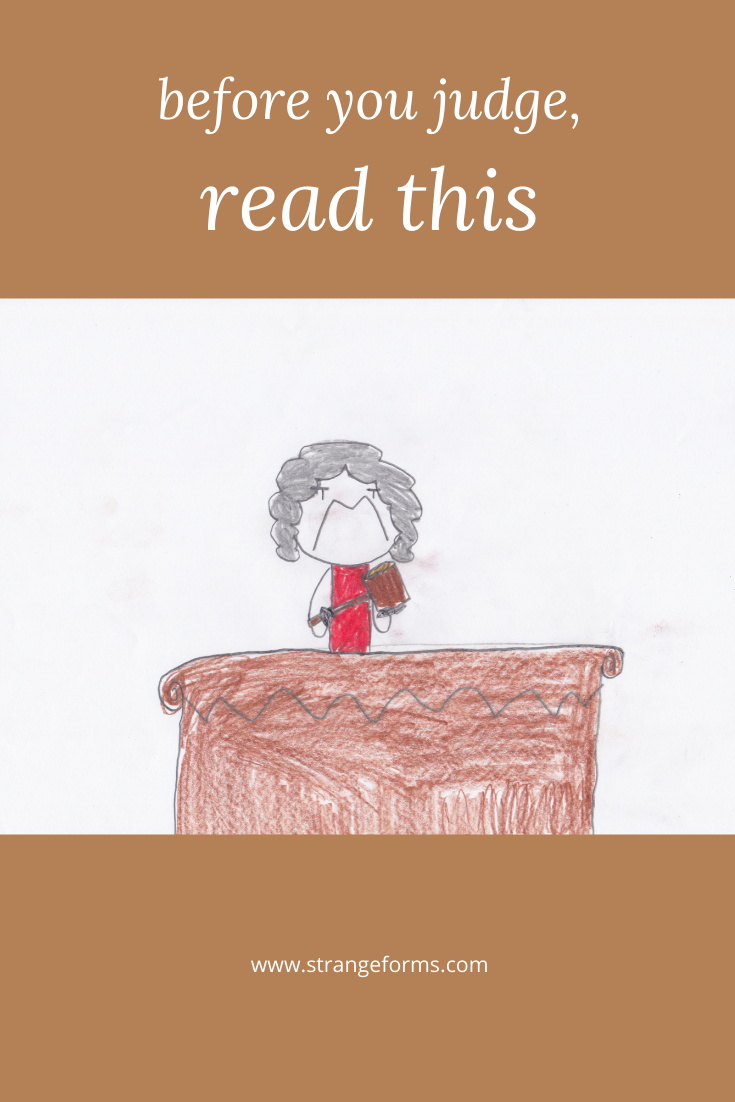There is a truth about judgement that every creative person needs to bear in mind
You’re familiar with judgement, obviously. It’s a powerful human faculty. Good judgement – a quality linked to things like taste, discernment, and reliability – is something I think we all strive towards in one way or another. Poor judgement, meanwhile, can quickly get us into hot water.
So judgement is an important skill. It helps us use what we’ve learned in the past to take us into the future without messing up.
Judgement feels clear and solid and final. Grounded and safe.
Take it too far, though, and we run the risk of becoming judgemental – letting judgement become an end in itself, rather than a useful cognitive instrument. The feeling of power that goes with judgement can be addictive, and sometimes we allow our strong opinions to delude us into thinking we’re entitled to comment when we’re really not.
I used to describe myself as “allergic” to judgement – it actually felt as though I’d oversensitised myself to it through many years of classic A-student hoop-jumping activities.
(“Grade me! Look at me! Evaluate and rank me!” – Lisa Simpson)
Nowadays, although I do recognise that judgement is an important skill, I think it’s overused, wheeled out in situations where it’s really not needed. I won’t lie to you: I’m more than a little leery of it.
I finally realised why
You see, judgement is incompatible with presence.
That’s important. I’m going to repeat it, in letters of bigness:
Judgement
is incompatible
with presence.
It places distance between the judging mind and the thing being judged. Which can be useful, but not in every circumstance.
Your creative work, by contrast, demands presence.
You cannot be fully creative if you are not fully present
You cannot write a great first-kiss scene while looking after your toddler. You cannot implement a great visual composition while doing your taxes. You cannot give a great musical performance while thinking about your relationship problems.
Creative work demands your presence. It demands that you come and meet it, fully, in the moment, forsaking all else for the time being. That’s why it’s so tiring, and that’s also why it’s so satisfying.
But if you are judging, you are by definition not fully present. For judgement to take place, as I said, there has to be some gap, some space between the moment and the mind.
Therefore, learning to suspend judgement – temporarily! – is a practical prerequisite to the creative process.
Make first, judge later. (Or never.)
Here’s a question
How true is the above for you and for your creative practice?
You are, unavoidably, in relationship with the quality of judgement, and you have the power to manage that relationship in ways that are healthy for you.
So have a think about it, and see if there are any adjustments you want to make.
